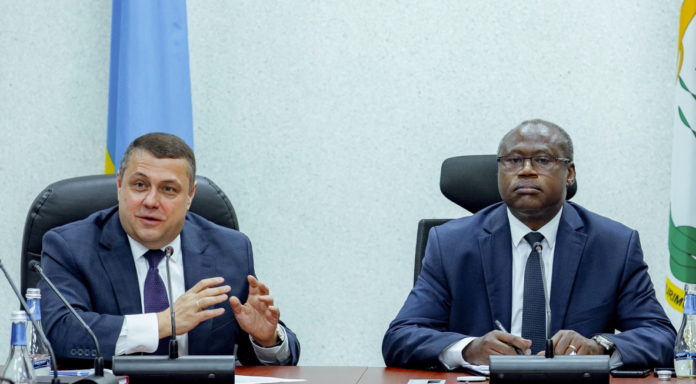
On March 22, 2024, the International Monetary Fund (IMF) announced a staff-level agreement following the conclusion of their mission in Rwanda, a significant stride in the nation’s economic stabilization and growth efforts. The IMF’s involvement includes the third reviews of Rwanda’s Policy Coordination Instrument and the Resilience and Sustainability Facility program, alongside the initial review of the Stand-by Credit Facility arrangement.
During the mission, led by Ruben Atoyan from March 11 to March 22, 2024, in Kigali, the IMF team assessed Rwanda’s policy directions and reform progress. This visit underscored Rwanda’s robust economic performance amidst a challenging global environment, marking a pivotal moment for the country. The completion of these reviews paves the way for Rwanda to access substantial financial support, amounting to approximately US$ 165.5 million, aimed at reinforcing its economic resilience and sustainability.
Rwanda’s economic landscape in 2023 showcased impressive growth, with a notable 8.2 percent increase in GDP year-on-year, driven by the services and construction sectors, alongside a resurgence in food crop production. Despite the global financial tumult and environmental challenges, including significant floods, the nation managed a sharp deceleration in inflation to 4.9 percent by February 2024, a marked improvement from the 21.7 percent peak in November 2022.
The IMF acknowledges Rwanda’s effective macroeconomic management, meeting all quantitative targets by the end of December 2023. Efforts towards fiscal consolidation, climate resilience, and foreign exchange market strengthening were highlighted as crucial steps in maintaining economic stability and growth.
However, Rwanda’s economic journey is not devoid of challenges and criticisms. Economist Dr. David Himbara, a former advisor to President Paul Kagame, offered a critical view on the reliance on IMF support, framing it as a temporary relief for Rwanda’s “Singapore,” referring to Kagame’s vision for the country. Himbara’s commentary reflects concerns over the sustainability of Rwanda’s economic model, focusing on the balance between imports and exports and the broader implications of reliance on international financial assistance.
The IMF’s mission concluded with a forward-looking statement, emphasizing the need for Rwanda to maintain its reform momentum, particularly in climate-related initiatives. The discussion around climate resilience and sustainable development is especially pertinent in light of Rwanda’s vulnerability to climate shocks, demonstrated by the devastating floods in May 2023.






























































